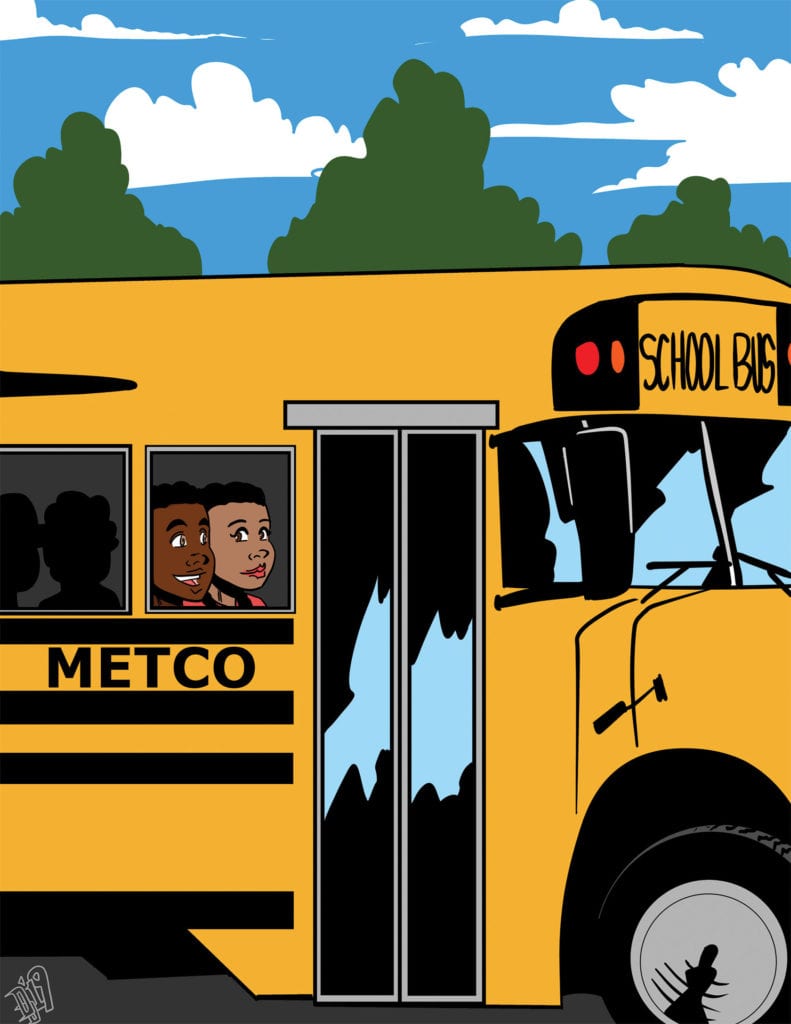
The front runner in the race for president would naturally become the target of those aspiring to be the Democratic Party’s candidate. Kamala Harris led the charge with an emotional criticism of Joe Biden for his opposition to busing. Harris gave an anguished recollection of her suffering from being bused as a little girl in Berkeley, Calif.
Harris’ dramatic account was confusing to those who fought for school desegregation in Boston. Berkeley was always held out as an ideal response to Brown v. Board of Education, the anti-discrimination case. The Berkeley Board of Education developed a racial integration plan requiring busing that was generally accepted by the community.
That was not the situation in Boston. The school committee was resistant to any plan that would provide equality for black students, so parents sued. Blacks won the case, and the federal district court judge was forced to implement a busing plan because the school committee refused to cooperate with any other approach. Unlike the congeniality of the Berkeley community, whites in South Boston attacked with bricks and stones the buses carrying black school children.
Boston students from the ’70s have stories to tell about the violence they encountered in their efforts simply to go to school, but that certainly was not the experience in Berkeley. There seems to be little justification for Harris to oppose busing. At any rate, her political position was compatible with Biden’s, who opposed a law to permit busing by the federal education department.
Harris’ opposition to busing also raises the question of whether she is progressive, liberal or moderate. The political pundits are trying to classify the candidates in those three categories. These distinctions are based upon the candidates’ comments in the debates or as a result of their responses to questions in town square events.
Those adamantly opposed to busing are considered to be moderate or even conservative. However, it is not easy to determine what is Harris’ real position on the issue. But, her skills as a prosecutor are so acute, it is unlikely that she was unaware that she criticized Joe Biden when she actually seemed to share his position on busing. One suspects she might have believed there was enough difference between their views to enable her to gain some political mileage with the dramatic and attention gathering expression of her childhood insecurities created by school busing.
But there is also another liberal issue on which Harris’ support is questionable, that is the single payer health plan, or Medicare for All. When asked if she would be willing to give up her personal health insurance for the plan, she raised her hand. When asked about it later, Harris expressed reluctance to implement a health system that might require such restrictions for everyone.
Political issues are quite complex and it will be necessary for the Democratic candidates to make their positions clear enough for the voters to know where each one stands. The nation now finds itself in an awkward position because Trump was able to conceal his real intentions behind smoke and mirrors in the 2016 election.


![Banner [Virtual] Art Gallery](https://baystatebanner.com/wp-content/uploads/2024/04/Cagen-Luse_Men-at-store-e1713991226112-150x150.jpg)



